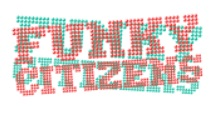This February marks two years since the start of Russia's aggressive and unjustified invasion on Ukraine. In addition to the material damage caused by the war, the Russian Federation has also been waging a dangerous information warfare, which has forced the pro-European authorities in Chisinau to block websites promoting and justifying war narratives, shut down TV stations, expel Russian diplomats, adopt legislative measures, and others.
Legislative Measures Adopted and Establishment of Sanctions
A few months after the start of the war, Chisinau authorities adopted amendments to the Audiovisual Media Services Code, known as the “Information Security Law” (Law on Modification of Audiovisual Media Services Code of Republic of Moldova No. 174/2018). The amendments do nothing more than protect consumers from disinformation. The new amendments introduce the concept of ‘disinformation’ as “the deliberate dissemination of false information designed to harm a person, a social group, an organization or the security of the state”, and prohibit broadcasters from relaying information and news programs from countries other than the Member States of the European Union, the United States of America, Canada and the states that have ratified the European Convention on Transfrontier Television. The Russian Federation has signed but not ratified this international convention.
In July 2022, the Contravention Code was supplemented with a new article (Article 70) which makes incitement to discrimination punishable. These changes were also made due to the appearance in the public space of a number of messages inciting hatred and discrimination targeted at Ukrainian citizens, refugees in Moldova.
Russian Diplomats Expelled
Subsequently, in July 2023, Moldovan authorities announced a reduction in the number of Russian diplomats and technical staff at the Embassy of the Russian Federation in Chisinau. This decision was made shortly after The Insider portal and Jurnal TV published an investigation alleging the Russian secret services were spying on state institutions with the help of antennae on the premises of the Russian Embassy in Chisinau. Hence, in August, 22 Russian diplomats and 23 technical staff and their families left Moldova. At the time, several pro-Kremlin sources accused Moldovan authorities of being Russophobic and that the decision had been made at the behest of the West, which would have been a detriment to the citizens, and that “Moldova is following Kiev's path”.
TV Licenses Suspended, Websites Blocked
Two months later, in the run-up to the November 2023 general local elections, waves of disinformation were rising, with the authorities blocking several pro-Kremlin editorial websites and shutting down Russian-language TV stations affiliated with politicians also close to the Kremlin.
Hence, in October 2023, the Emergency Situation Committee (ESC) ordered suspension of broadcast licenses of six TV stations (Orizont TV, ITV, Prime TV, Publika TV, Canal 2 and Canal 3). The Committee’s decision was similar to that of December 2022, when the licenses of six other TV stations (Primul în Moldova, RTR Moldova, Accent TV, NTV Moldova, TV6, Orhei TV) were suspended.
The Intelligence and Security Service (ISS) of the Republic of Moldova ordered the blocking of 31 websites, including Kp.md, Vedomosti.md – widely read platforms in the Republic of Moldova which transmitted various war narratives, discriminatory messages and hate speech.
Subsequently, another ISS order included the websites of some TV stations, such as Publika, Canal 2, Canal 3, Orizont TV, ITV, also closed on the same day, after the ESC had suspended their broadcast licenses at the ISS request on the grounds that Russia was trying to influence the local elections of 5 November. In their turn, journalists of those TV stations accused the authorities of censorship and of violating their freedom of expression.
Also in October, ISS issued another order closing down several Russian TV websites, including Ntv.ru, Ren.tv – again, on the grounds that these platforms promoted online content used in the information warfare against Moldova.
Centre for Strategic Communication and Countering Disinformation Established in the Republic of Moldova
In 2023, in order to protect the information space and make the population more resilient, the Moldovan authorities established a Centre for Strategic Communication and Countering Disinformation, an institution headed by the former Interior Minister Ana Revenco. This Centre is a novelty in the region and its mission will be to strengthen inter-institutional cooperation in the fight against disinformation, manipulation of information, and foreign interference that threaten or may threaten national security and jeopardize the achievement of national interests.
Complex Measures: Tougher Laws, Penalties and Informing the Public Informed
According to Petru Macovei, Executive Director of the Association of Independent Press (API), who has recently been elected as a member of the Board of the Centre for Strategic Communication and Countering Disinformation by the Moldovan Parliament, updating the laws to address disinformation and the spread of fake news, including application of sanctions, is not enough. It is also necessary to continue education campaigns in Moldova to raise public awareness of the disinformation phenomenon and to teach the society how to spot fake news.
Taking these measures is necessary in the Republic of Moldova because in recent years disinformation has grown in the country, a phenomenon caused by several factors, including:
Political influence, being used most of the time for manipulating public opinion in favor of certain parties or political leaders, usually making a division between East and West.
Weakened and politicized media. Over the years, the media has been politicized and people have had few sources of credible and verified news, and there is a risk that they will fall prey to misinformation.
Ethnic and linguistic divisions artificially created by interest groups who have permanently tried to exaggerate such differences in the Republic of Moldova, exploiting narratives such as Russophobia or Romanian phobia, amplifying misinformation.
External influence of the Russian Federation. The Republic of Moldova is often the subject of divergent interests of the Russian Federation, trying to influence public opinion through disinformation in various ways.
Image source: Eppgroup.eu
Author: Lilia Zaharia from TI-Moldova
This article was published in partnership with Funky Citizens
